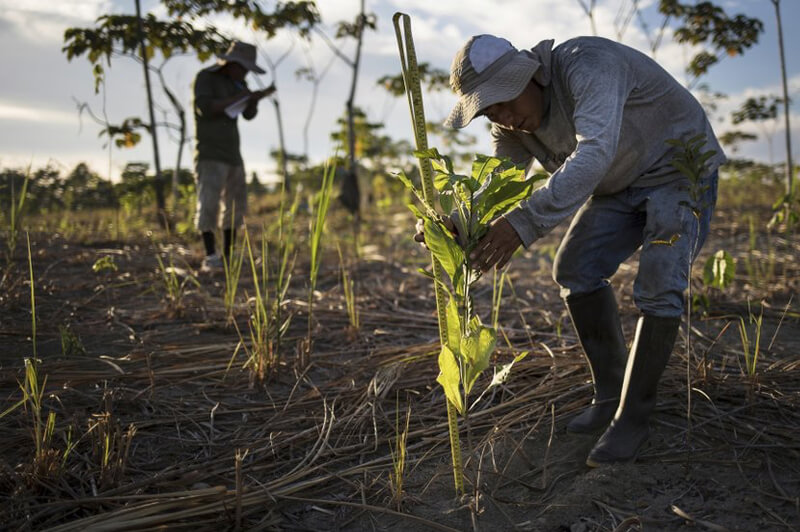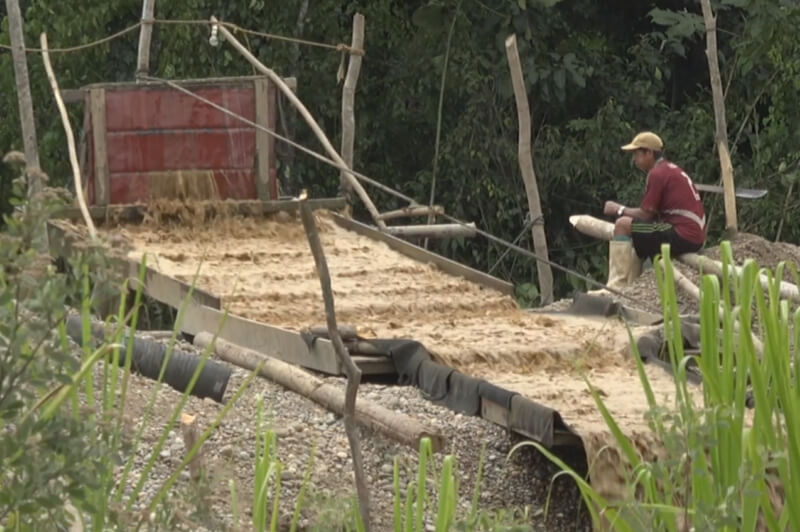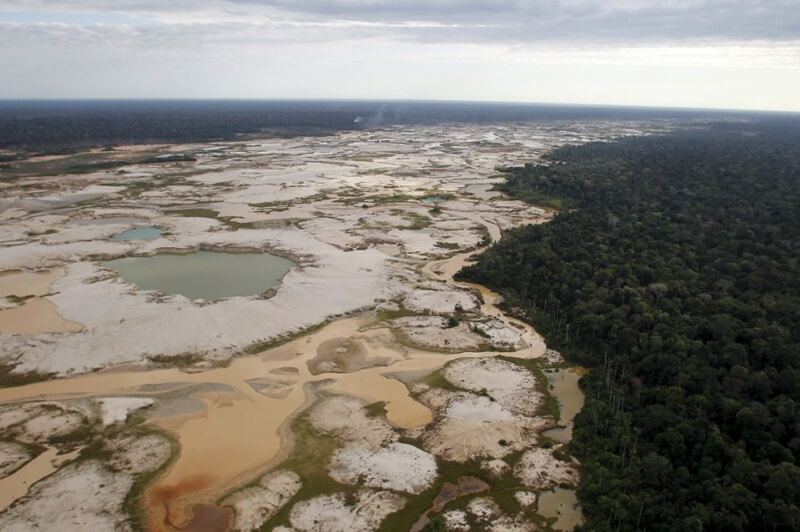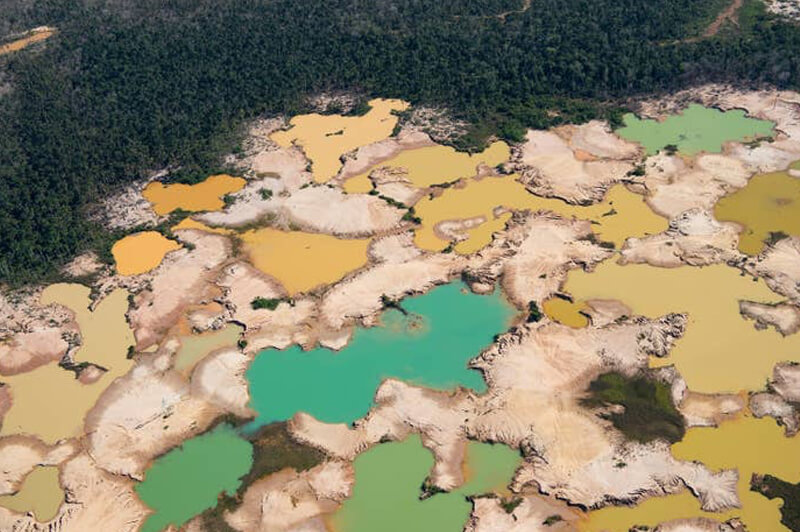CINCIA represents the Sabin Center’s most ambitious and influential project — a multifaceted research and education initiative in one of the most biodiverse places on earth, Madre de Dios in the Peruvian Amazon.

The Center for Amazonian Scientific Innovation (CINCIA) was established in 2016, when Wake Forest University received nearly $10 million in support from USAID and other private sector partners. CINCIA was established through CEES and aims to develop transformative solutions to promote sustainable use of tropical landscapes, combat environmental destruction and improve human health in the Amazonian province of Madre de Dios (MDD) in Peru. The U.S. Agency for International Development (USAID) announced the award of $2.5 million to help establish CINCIA, an alliance of U.S. and Peruvian institutions led by experienced scientists, conservationists and affiliates. An additional $7 million in support, including cash and in-kind contributions, has come from the Amazon Aid Foundation, Ecosphere Capital Partners/Athelia Climate Change Fund, ESRI Global Inc., World Wildlife Fund (WWF) and Universidad de Ingeniería y Tecnología (UTEC). The official announcement of the launch of CINCIA was made on Earth Day, April 22, 2016, during a celebration event hosted by the U.S. Ambassador to Peru, Brian A. Nichols, at UTEC in Lima, Peru.
In just three years, CINCIA has become the international hub for Peruvian and foreign scientists and affiliates to collaborate on critical priorities in Madre de Dios, including: the humanization of gold miners as a way of genuinely gaining their trust and thus access to their land concessions for field research, two nurseries efficiently and inexpensively growing more than 30 varieties of native tree seedlings, Amazonia’s first biochar operation that has proven essential in CINCIA’s restoration and reforestation of once-lush rainforest test plots, the reduction of human health threats from environmental mercury by interacting directly with indigenous peoples who live in the jungles, detection of deforestation threats, and sustainability.
A central goal of CINCIA is to build scientific capacity needed in the local communities to face the growing environmental threats to the people and the region’s rainforests. A supporting goal, which is gaining prominence in the third year of the grant, is education outreach in public schools, science-based curriculum building, pioneering alliances between education leaders in the national government and the local communities, and maintaining the growing profiles of our lead scientists in communicating the dramatic outcomes of their field work.
Through collaborative research, innovative education programs and apprenticeships, the Centro de Innovación Científica Amazónica aims to inspire and groom future local scientists while also engaging with the local community to create the sense of ownership needed to foster change and implement sustainable practices in Amazonia. The Centro de Innovación Científica Amazónica has operated in partnership with the region’s primary research institutions – the Peruvian Amazon Research Institute (IIAP) and the National Amazonian University of Madre de Dios (UNAMAD), the sole national university in the region. IIAP is a governmental research entity under the Peruvian Ministry of the Environment with a 35-year history of scientific investigation in the Amazon.
The vision for this project was inspired by the work of CEES Fellow Sarah DuPont, founder of the Amazon Aid Foundation and her work to build awareness of the Amazon through her film River of Gold. The Centro de Innovación Científica Amazónica has been led by the efforts of Wake Forest conservation biologist and CEES director, Miles Silman, who serves as the associate director for science; longtime colleague and a leading expert on mercury in the Amazon, Luis Fernandez, who serves as executive director; and Justin Catanoso, CEES Board Member, journalism professor, international environmental journalist and communications and management consultant to the CINCIA team in Madre de Dios.
Our Vision
At the Center for Amazonian Scientific Innovation (CINCIA), Latin American scientists who are recognized experts in forestry, mercury toxicity, fish and water quality, biochar fertilization, drones and education combine to develop a deep scientific understanding of the environmental devastation brought on my widespread gold mining. Education outreach in Peruvian schools helps raise awareness of the importance of the Amazon to local communities and the world. Funders include the U.S. Agency for International Development (USAID), World Wildlife Fund and a host of Peruvian government and non-governmental agencies.
Our Mission
CINCIA scientists work to build trust with government leaders, conservation specialists, miners and farmers to use the land more efficiently and with less environmental damage. The expertise of its scientists is being developed into strategies and public policy to help restore an invaluable tropical ecosystem and to mitigate public health risks. The work of CINCIA serves as a model for large-scale reforestation and restoration, improved biodiversity conservation, and more sustainable small-scale mining and farming techniques in Peru and in all of Amazonia.
Latest CINCIA News at Wake Forest
- Vega’s “The Hidden Cost of Gold” TED Talk Making Global Waves
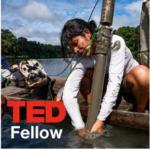
- Fernandez Weighs in On Peruvian Development Issues
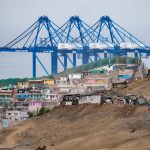
- Mercury Research Sparks Global Attention, Community Action

- “Gasoline on an already hot fire”
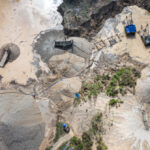
- Welcoming the Next Generation of Peru’s Indigenous Leaders

- Strengthening the next generation of Peruvian Amazonian Leaders

Wake Forest in Peru

Featured CINCIA Stories

Growth in higher-paying green jobs can benefit rural North Carolina, says CEES affiliate Mark Curtis
WFDD – August 11, 2022
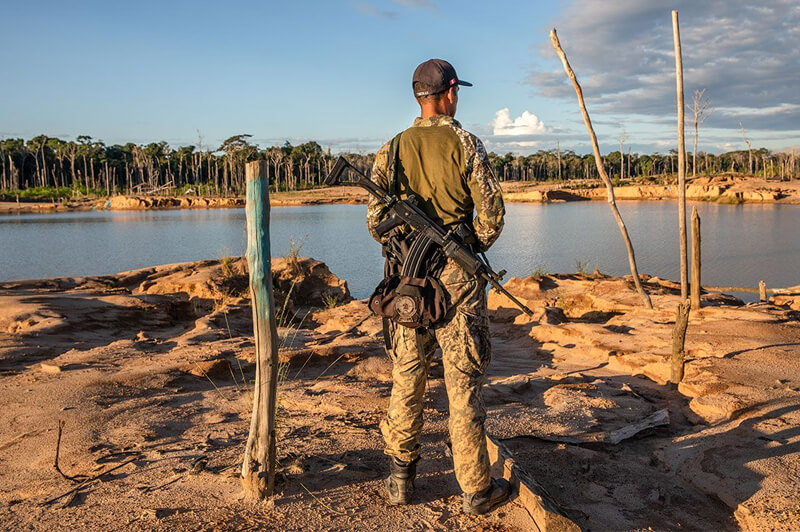
The scientists restoring a gold-mining disaster zone in the Peruvian Amazon
Nature – February 4, 2020


